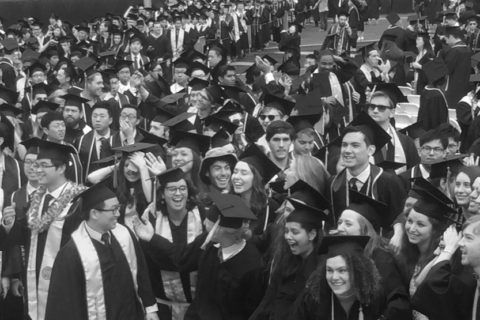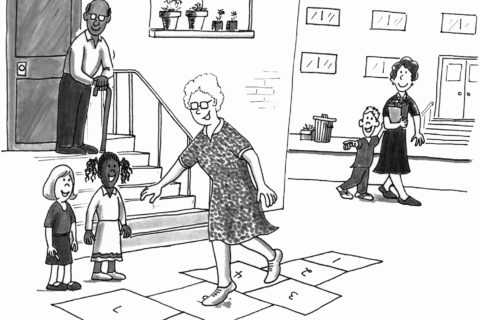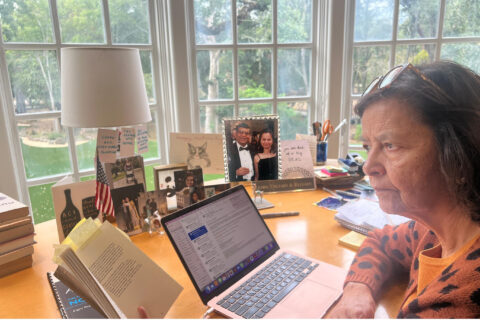
Last November’s presidential election results were a wakeup call for Silicon Valley. For the first time we, the Siliconeers, felt disenfranchised and irrelevant even though California is the most populous state, has created most jobs by far, and has primed the pump of innovation over past four decades. “Others” voted in a president who does not represent our vision of what defines the America of the future. This may happen at times in a democratic institution, but the regret is that we have failed because we stayed disengaged from the legislative process.
Whether Democrat or Republican, entrepreneur or tech employee, immigrant or born in the US, boomer or millennial, we learned that staying on the sidelines of our political machinery is a mistake. Hamilton, the musical now running in San Francisco, has reminded me that we must demand more from ourselves just as Alexander Hamilton did. He was an immigrant and an American Revolutionary. At 32 he became America’s first Secretary of the Treasury. He wrote 51 of the 85 Federalist Papers, designed the national banking system, set economic policies, was a masterful negotiator and died at the age of 47. Since then, America has flourished as a country and so has the democracy. We can ill afford to throw its virtues out the window. Our culture is failing to cultivate civic responsibilities and deeper sense of purpose. We are living much longer but having much less impact.
Silicon Valley is fast moving and we have frequently reinvented ourselves. A new wave sweeps us into the next era of innovations every 15 years. We also have the ability and capacity to overhaul California’s and Nation’s political system.
We have turned many industries upside down; semiconductors revolutionized computing, internet and cell phones revolutionized communication, Uber revolutionized transportation, Airbnb the hotel industry and now Tesla is making all-electric and self-driven cars. Along with it we reformed America’s workplace culture, starting with relaxed work attire, open interaction with superiors to flex-hours and work-from-home culture. We found trust boosted productivity and employee retention increased efficiencies. Washington may be able to adopt these lessons learnt, only if the Valley people would make effort to educate and influence legislative decision making.
I recently returned from a governance conference of Sutter Health, the second largest non-teaching healthcare provider in California. One of the presenters was Scott Howell, a former state senator of Utah. His talk made me think. He asked us to name a California state senator. When none of us could, he asked us if we knew that there is a federal government website for tracking bills being introduced, or has major action such as a vote or being enacted. Again we did not. When he asked if we knew how to effectively approach our congressional leaders, only two hands went up. He told us that our elected officials want to hear from us to educate themselves as they are not subject matter experts. It reminded me that by not participating in our democratic institution, we have handed over the power that belongs to us, to others.
The blame for this disengagement resides with our post WWII culture. Since the threats of war are no longer looming, epidemics are virtually non-existent and food is plentiful, we in America expect very little from our youth. We tend to treat our teenagers like children. If one is old enough to have babies one is old enough to take responsibility and avail of educational opportunities to find his/her own path in life, to contribute at home, and to assume civic responsibility seriously. Instead we barely urge our youths to vote. We must start taking our high schoolers to visit Sacramento, the state capital, when the state assembly is in session and decisions are being made. This will inspire them and instill a deeper sense of civic purpose in their lives.
American universities have a different problem: There are not enough of them and their curriculums have not tailored to the skills required for the evolving job market. For example in 1998, when Y2K was imminent, many technical jobs got outsourced, creating large demand for H1B visas. American students did not get the education to compete for these jobs. Four-year college and university is not exactly affordable by most middle- and working-class Americans. The top private universities on the other hand have stashed away billions of dollars in endowment and have very little to show for it. They have only marginally increased capacity, and are slow to introduce programs useful for new economy. Do they really deserve the tax-exempt status? This can be changed by reflecting on the issues, championing new initiatives to rectify them with proper rationale, conviction and persuasion.
Bringing about progressive reforms can become the new wave that sweeps Silicon Valley and California, while we continue to forge ahead with technology innovations.







